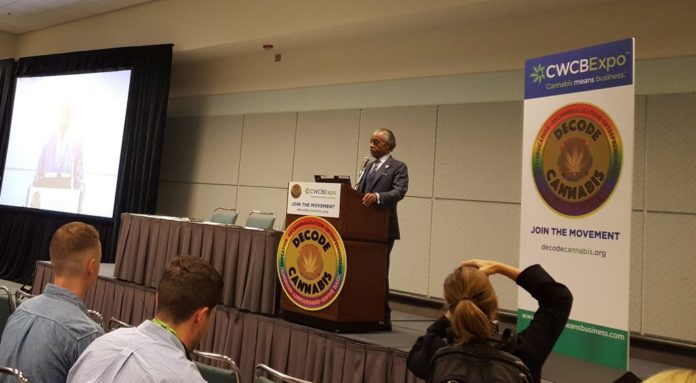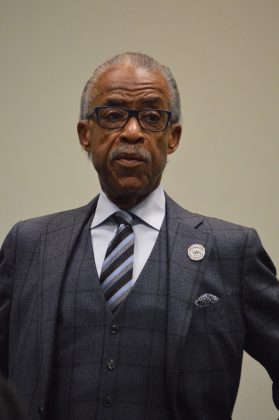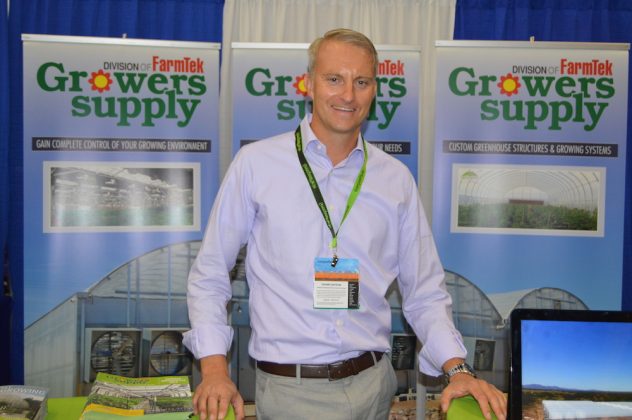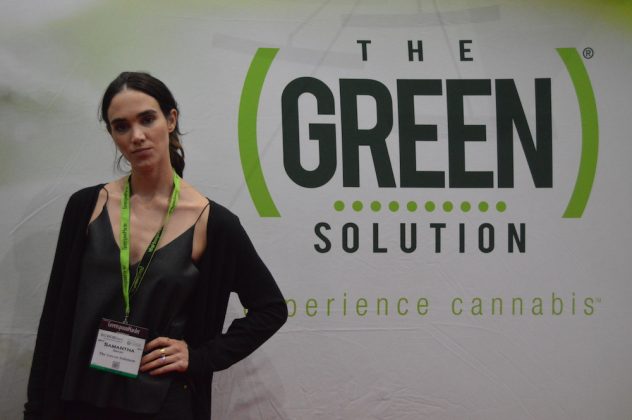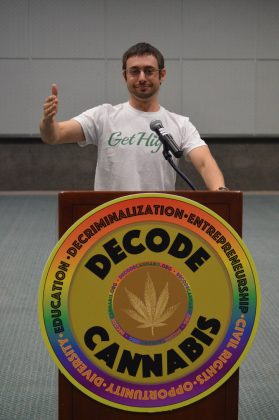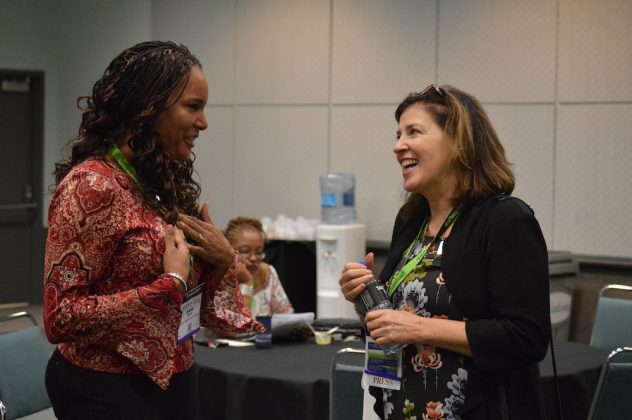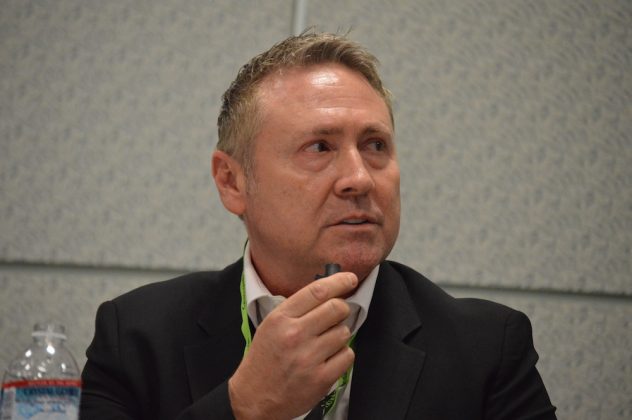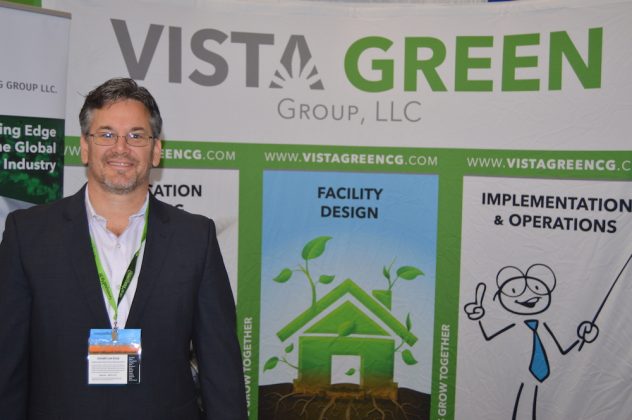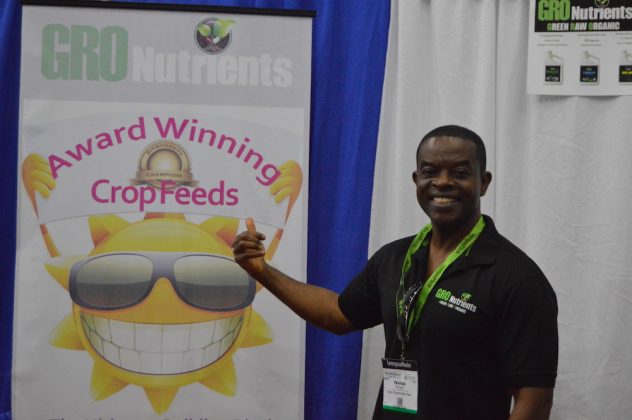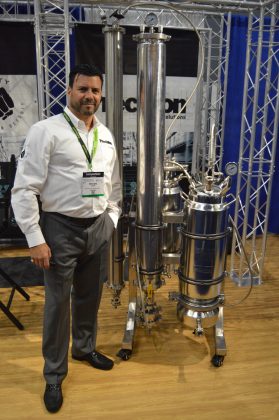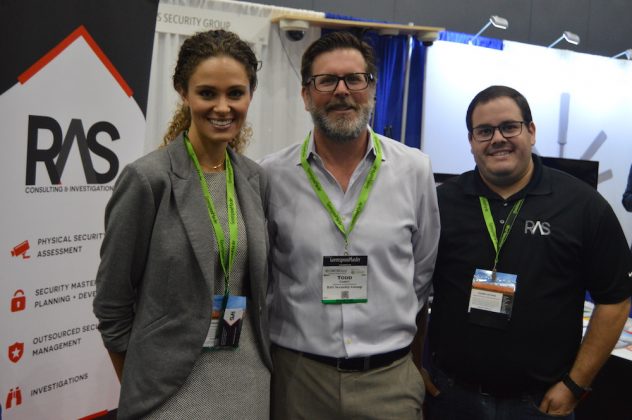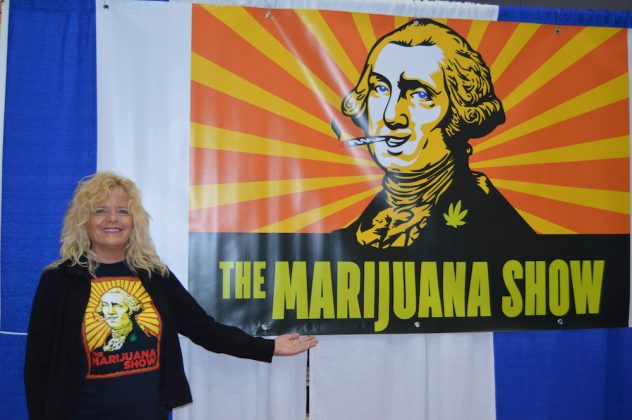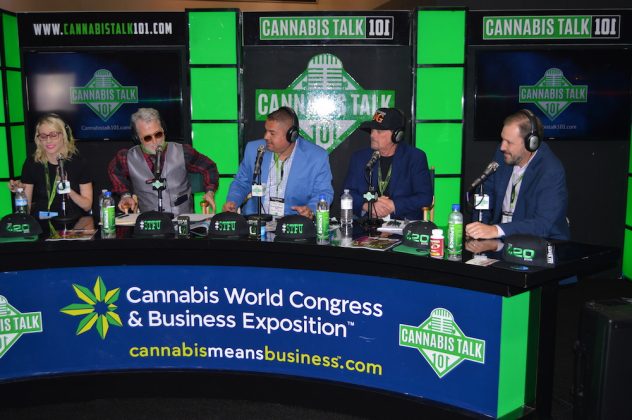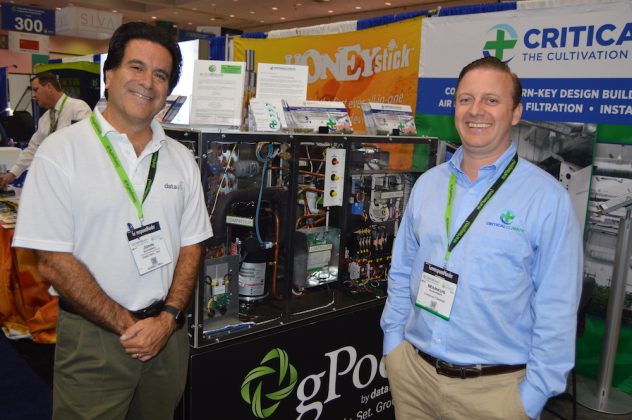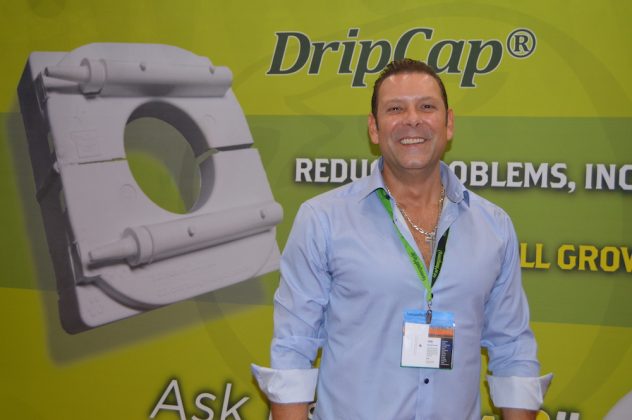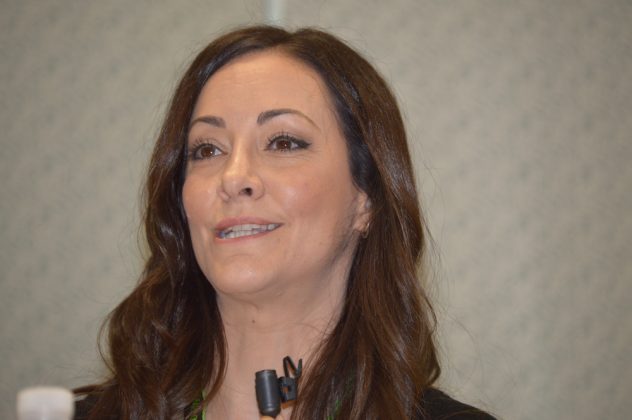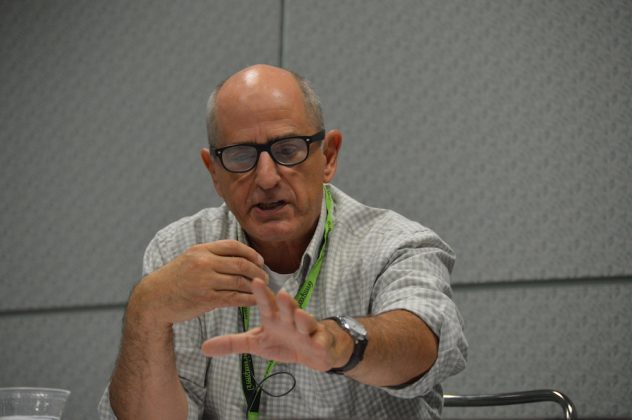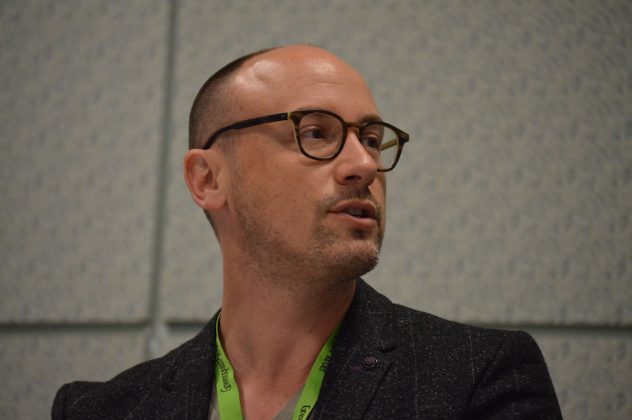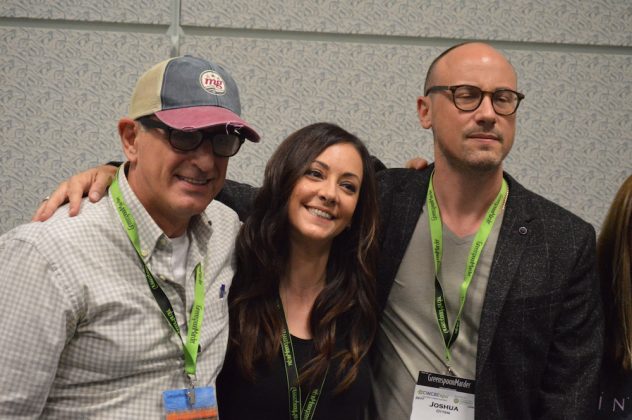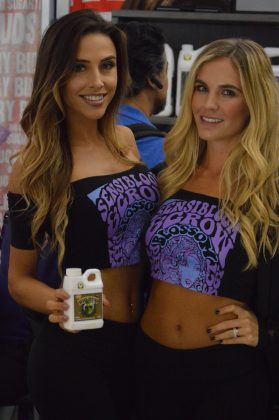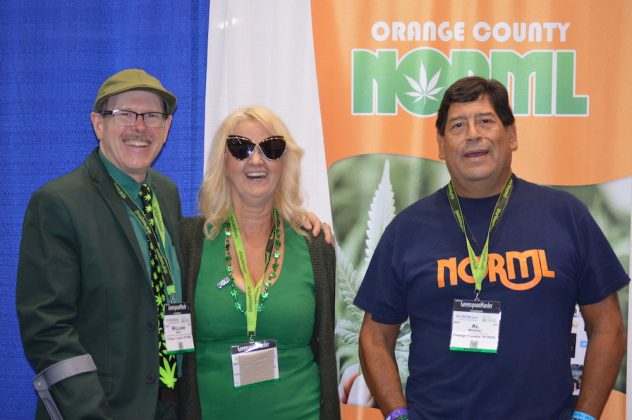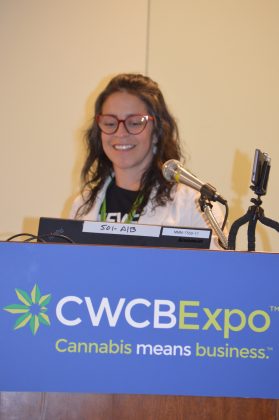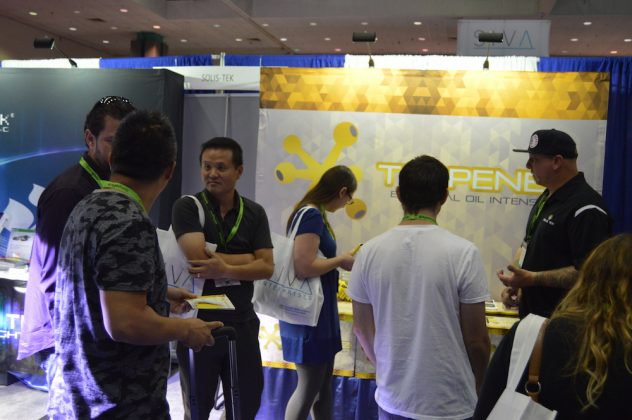LOS ANGELES – The West Coast version of the Cannabis World Congress and Business Expo went off without a hitch this week as a multiplicity of exhibitors, attendees, speakers, and supporters of the industry made their way to the Los Angeles Convention Center to attend the busy three-day business conference, which ended yesterday. Foot traffic in the exhibit hall remained consistently moderate Thursday and Friday as attendees mingled comfortably at booths offering a variety of products and services to an industry that is finally taking shape on a national level. California, which is just a few months shy of its date with “adult use” destiny, remains an undeniable hotbed of entrepreneurial opportunity and energy, but for the entire industry as well, next year appears equally portentous as a time of reckoning. Or, as keynote speaker extraordinaire Rev. Al Sharpton succinctly put it during his address Thursday, “’18 is the year.”
The event was originally scheduled to repeat the dual-keynote address format from the CWCB June event in New York, where notorious political provocateur and libertarian cannabis activist Roger Stone was asked to fill the other keynote slot. However, following a gathering boycott opposed to Stone’s appearance at any more events, expo organizers earlier this month disinvited Stone from appearing in Los Angeles and in Boston next month, a move that ended the boycott but also resulted in Stone threatening to sue the show as well as organize some sort of disruption of the event, a threat that did not materialize in L.A.
Instead, Sharpton had all the attention during a keynote address that was supposed to run an hour but instead lasted a mere 15 minutes, which was all the time Sharpton needed to explain in no uncertain terms why he had come, what he was committing to do, and what he was challenging the industry to do in return. There were no mixed messages hidden what he had to say, in part because he believes his primary message of inclusion is so unambiguous as to be almost beyond words. “It ought not even be discussed,” said the 62-year-old minister and civil rights activist. Of course, discussion and advocacy is precisely what Sharpton brings to the cannabis table, and in that vein, he has fixated on ensuring that economic opportunity in cannabis does not bypass the African-American and Latino communities, the very people most victimized by the nation’s so-called war on drugs. “We cannot have an industry where blacks went to jail and whites go to the bank,” he said to applause from the mostly-white audience.
The march toward legalization must be in lockstep with efforts to include the targeted communities. “We can do both—inclusion and legalization—at the same time, and inclusion must be part of the legalization,” added Sharpton, who will be organizing his efforts in cannabis through a new group called Decode Cannabis, a “501c3 organization tasked with organizing a national mobilization effort to educate Americans on the social benefits of a federal mandate removing Cannabis from the Schedule I.”
“Our commitment is that we will work with the civil rights communities and the faith community to protect the legalization of marijuana and protect the industry,” said Sharpton, adding, “I come to make that commitment, I come to make that challenge, and I’m willing to work with anyone and everyone as long as it is inclusive, and as long as we understand we have to do it together, and as long as we understand that this is not even an option.”
It’s not only about the money, however. Sharpton saved some of his most pointed comments for the end of his address, when he spoke to the moral imperatives contained in the decisions we make as a society regarding cannabis use. “We need everyone at the table because this is a universal right,” said Sharpton. “This is about healthcare. To think that we are sitting around discussing whether people in pain should be able to relieve the pain they are feeling, discussing whether people need their medical marijuana usage to ease their infirmity — and we act like healthy people ought to have the option to decide whether they suffer or not! What kind of nation have we become where we sit up in legislative chambers and boardrooms and decide how long someone should suffer? There is nothing more inhuman and mean-spirited than that. If we can’t unite and fight on that together then we can’t unite and fight on anything.”
The following is a mostly complete transcript of Rev. Sharpton’s keynote address Thursday afternoon in Los Angeles:
I’ve spent much of my life dealing with criminal justice issues, and I don’t have to tell the people in this room the unfairness that we’ve seen in the criminal justice system around the issue of what they call low-level drug crimes. We were a part of those appealing to the Obama administration to begin what they did in commuting those sentences. When this administration came in they again started the rhetoric about the war on drugs, which raised even more of a concern, as we had started seeing movement in the legalization of medical marijuana.
What is needed is the argument Decode made to me for there not to be a choice between legalizing or decriminalizing, but the synthesis of bringing us together. The best way when unions work is when both sides have self-interest. It is in the self-interest of all Americans to stop this criminalization pathos that has put people in jail and ruined their lives with records for no real effect on society that is negative, and no real scientific or medical effect that is detrimental to them. This whole question of supporting the criminal justice system and really the criminal industrial complex at the expense of people because they had some marijuana in their pocket needs to stop and needs to not in any way be continued by this new administration.
Now, there are those who would say, Reverend, you are not only the civil rights leader of an organization but also a minister, and you’re telling people to smoke marijuana? No, I’m telling people first of all who have medical needs should not have to choose between an archaic law and their health. That’s one. There are many things that pharmaceutical companies sell that have been detrimental, so you can’t play the game by different rules. You can’t tell people, ‘Go to the drugstore, but don’t use cannabis that has proven to be healthy and in some cases necessary for your health.
But I’m not even telling people on a recreational level what to smoke. But I am telling them that they ought not be criminalized for doing that. No one is asking you for permission to lead their lives. What they are saying is that no one should make them a criminal for leading their lives. If there are effects from the marijuana… you can’t tell me as someone who grew up with many ministers and others I know that had a bottle of Johnny Walker Red in the bottom drawer of their desk, that if you drank too much of that it would affect society. Let’s be real.
….
At the same time, as we have seen 23 states make legal marijuana something that passes state law, which in and of itself is threatening to this administration, we must have inclusion in the industry to make sure that those communities that have been impacted also have a road map toward participation in dispensaries and other [businesses] in the industry.
We cannot have an industry where blacks went to jail and whites go to the bank. There must be a double focus. We must mobilize and organize in our communities to support the continued legalization of medical marijuana, and the industry must say that we cannot have laws that are tantamount to grandfather clauses that ban and bar those who have had records or other things that would exclude them from ownership. We must have a marriage of commitment that we are going to open up the industry as we continue to open up society, and everyone benefits from that.
In voting, they would say, ‘Oh no, everyone can vote, as long as your granddaddy voted, or you can pass a test at the polling place.’ (How many jellies in this jar of jelly beans, something you could never answer.) So, what some have allowed is to have the prerequisite for ownership so stiff that some of the people who have been victimized by criminalization have not been able to benefit and enter the industry as we tear down the walls of criminalization around the country. We don’t have to do one or the other; we should do both at the same time.
How? There’s a big midterm election next year. State legislators are up all around this country. If we are all together, this industry, civil rights communities, civil liberties communities, those that have done work in this — the Drug Policy Alliance and other groups that have been doing this far longer and stronger than I have — it will be a campaign issue on a state level. And in that issue must also be the requirements for ownership as well as the legalization. Don’t forget those grassroots groups that fought this when it was not popular. They should not be sacrificed at the altar of personal profit without dealing with public policy. This is about public policy that is fair, but it must be politically dealt with. We don’t need a moment, we need a movement, and ’18 can define the industry and the public policy at the same time.
The future of the cannabis industry will be determined next year. If we cannot put pressure on state legislators next year, it will be extremely difficult to pick it up in 2020 or 2022. Next year is vital because it is right at the cusp of the age of momentum toward legalization. Now we have an attorney general who says he wants to reverse that, and soon they’ll have a case in court and run it all the way up to the supreme court, and you will then find yourselves out of business. You do not avoid a problem when you have the problem, but before it becomes a problem. ’18 is the year to do this, and we must put all hands on deck to do that. But there must be an inclusive policy and an inclusive commitment and it must be done with those who have been shut out.
I’m not saying that everyone had an exclusionary mentality. I didn’t come to call folks names, like bigot. Most folks were just doing what they do. But I am saying that many of the laws were biased, and we must have a joint commitment to work with each other to do both at the same time. I don’t know about you; I went to public schools and didn’t have the education that many of you have, but I can walk and chew gum at the same time. We can do both—inclusion and legalization—at the same time, and inclusion must be part of the legalization.
Our commitment is that we will work with the civil rights communities and the faith community to protect the legalization of marijuana and protect the industry. We want to work with Recode to make sure that that is inclusive for everyone. It took courage for the expo to open the doors to this dialogue, and there were those who in the early parts of this dialogue who stood back and did not come in because you cannot start with a poisonous atmosphere. I know some people were not coming because of a controversy. Some people are not universally loved in the mainstream and acceptable like I am. But we need everyone at the table because this is a universal right. This is about healthcare. To think that we are sitting around discussing whether people in pain should be available to relieve the pain they are feeling. That we are discussing whether people who need their medical marijuana usage to ease their infirmity–and we act like healthy people ought to have the option to decide whether they suffer or not. What kind of nation have we become where we sit up in legislative chambers and boardrooms and decide how long someone should suffer? There is nothing more inhuman and mean-spirited than that. If we can’t unite and fight on that together than we can’t unite and fight on anything.
I come to make that commitment, I come to make that challenge, and I’m willing to work with anyone and everyone as long as it is inclusive, and as long as we understand we have to do it together, and as long as we understand that this is not even an option. It ought not even be discussed. You and I know that they would have never had these laws had there been regulations for big industry when marijuana started in the first place. This is more about big business protection than it is protecting the rights of people, and we’ve got to stand up to big business together and protect the rights of people.
I want to give real credit to those grassroots groups, particularly those from the African-American and Latino communities that fought this fight when they were shunned by many in our community. They were right, they are right, but now we must have inclusion at the table with everybody. It is up to us as we see people continue to suffer. People should not have to move to another state to get what they need. This ought to be interstate, this ought to be national, this ought to be federal, and we can do it if we stand together, because the cause that binds us is deeper and more inclusive than the tactics and politics that divide us. Thank you very much.







